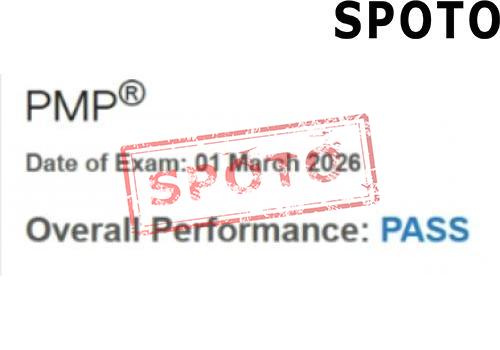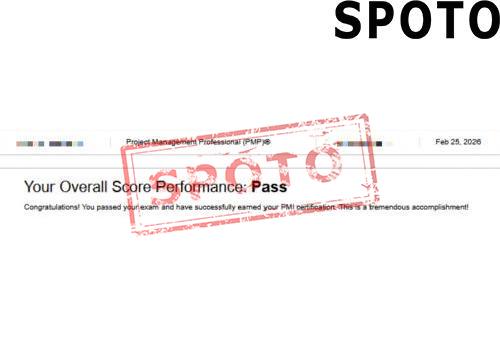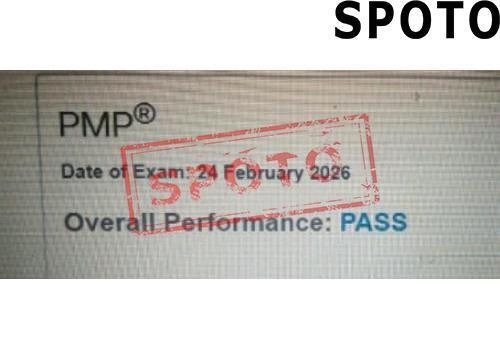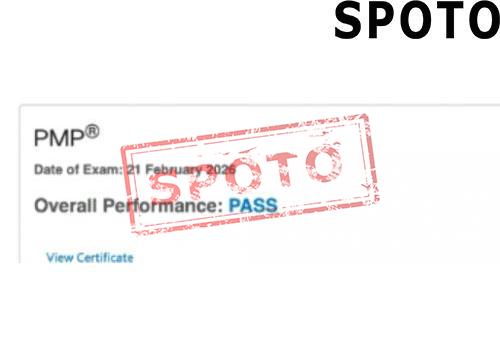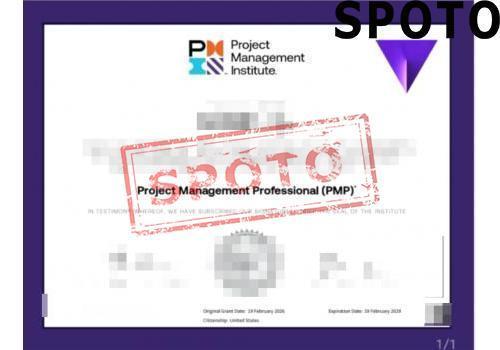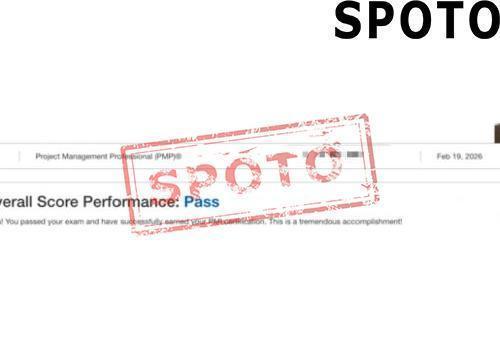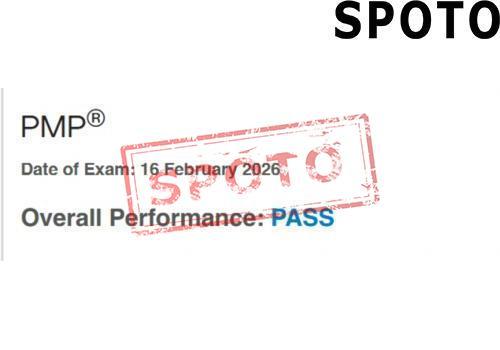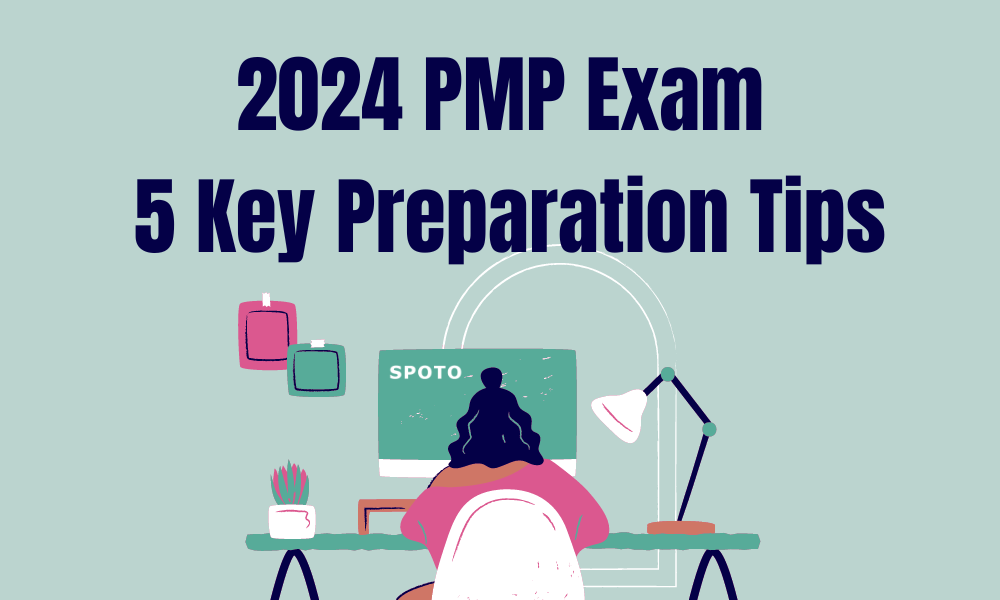
Table of Contents
The Project Management Professional (PMP) certification is a well-known credential in project management. For those looking to build a strong career in this field, earning the PMP certification is a major achievement. Although preparing for the PMP exam can be tough, these five tips will help you study smarter and improve your chances of passing.
Ⅰ. Master the PMBOK Guide: Phased Study Plan
To prepare effectively for the PMP exam, a phased approach to studying the PMBOK Guide is essential. This plan will help you build a strong foundation, deepen your understanding, and systematically review key concepts. Here's a breakdown of each phase to guide your study process.
Phase 1: Initial Reading of PMBOK
Goal: Get familiar with the overall framework and basic project management concepts.
Method: Skim the entire book, highlight important sections, and get a general idea of each chapter's content.
Phase 2: In-Depth Study of PMBOK
Goal: Develop a deeper understanding of each knowledge area and process group.
Method: Study 2-3 chapters weekly, using video tutorials or training courses. Focus on mastering the inputs, tools and techniques, and outputs (ITTO) for each process.
Phase 3: Identifying Gaps
Goal: Strengthen memory and address challenging areas.
Method: Take mock tests and practice exercises to spot weak points and review key topics accordingly.
Phase 4: Comprehensive Review
Goal: Build a systematic understanding of all knowledge areas.
Method: Create mind maps to visualize the connections between process groups and knowledge areas, and review them weekly.
Ⅱ. Efficient Techniques for Mastering PMP Formulas
Mastering formulas is key to solving quantitative questions on the PMP exam. Here are practical techniques to help you memorize and apply them effectively:
- Understand the Formula's Purpose and Use: Study each formula, focusing on its logic and derivation, along with when and how it's applied. This makes it easier to recall during the exam.
- Create Formula Flashcards: Write the formula on one side and its meaning or application on the other. Regularly reviewing these flashcards will strengthen your memory, making it easy to review even in short bursts.
- Use Diagrams and Examples: Visual aids like diagrams (e.g., Critical Path Method) can help you grasp the formula. Real-life examples will connect formulas to project management scenarios, enhancing retention.
- Practice Regularly: Work through practice problems to repeatedly apply formulas. The more you practice, the more natural it becomes to recall and use them.
- Utilize the Forgetting Curve: Based on Ebbinghaus's theory, reviewing formulas at intervals helps reinforce memory and slows forgetting.
- Use Associations or Visuals: Create associations or use simple images and symbols to represent formulas. Colors or visual cues can make remembering them easier.
- Chunking and Induction: Break complex formulas into smaller parts. Memorize each component before combining them. Look for patterns to make the formulas easier to recall.
- Summarize and Categorize: Group related formulas and organize them by type. Creating your own classification system will help you better understand and memorize each formula.
Ⅲ. Maximizing the Value of PMP Sample Questions
PMP sample exam questions are a valuable tool for your preparation. They help you understand the exam's difficulty, question types, and key focus areas. Here are strategies to maximize their use:
Analyze Key Areas: Review sample questions to identify which knowledge areas are emphasized, such as integration, scope, time, cost, quality, resource, communication, risk, and stakeholder management.
Recognize Question Patterns: Familiarize yourself with common question types like situational, conceptual, and calculation-based questions to better understand the exam format.
Adapt to Exam Language: Practicing with sample questions helps you get comfortable with the phrasing and terminology used in the exam, improving your speed and comprehension.
Address Knowledge Gaps:
- Mistake Analysis: Review errors from practice tests to identify gaps in your understanding or application of concepts.
- Targeted Practice: Focus on areas where you make frequent mistakes, and continue practicing until you've mastered them.
Ⅳ. Effectively Using PMP Mock Exams
Mock exams are a crucial step in assessing your readiness and getting familiar with the PMP exam structure and time management. Below are strategies to help you make the most of mock exams:
Simulate the PMP Exam Environment:
- Take the mock exam in a quiet, distraction-free setting to replicate the real exam environment.
- Stick to the 230-minute time limit to mimic the actual test duration.
- Ensure your mock exams include both single- and multiple-choice questions to mirror the question types.
Time Management:
- Pacing: Practice finishing each section within the allotted time, especially for calculation- and scenario-based questions that require deeper analysis.
- Time Allocation: Distribute time wisely, avoiding over-investing in any single question to ensure all questions are answered.
- Breaks: Plan short breaks to simulate real exam fatigue management.
Learning from Mock Exams:
- Mistake Analysis: Review mistakes carefully to identify whether they are due to knowledge gaps, misunderstandings, or carelessness.
- Strategy Adjustment: Use results to adjust study focus and exam strategies, such as reviewing weak areas or refining answering techniques.
- Mindset Preparation: Mock exams help build confidence and reduce exam anxiety, allowing you to mentally prepare for the real exam.
By using these strategies, mock exams will help you understand the exam format, improve time management, and continuously refine your preparation strategy.
Ⅴ. Maintaining a Positive Mindset for PMP Exam Preparation
Staying mentally strong is as crucial as mastering the study material when preparing for the PMP exam. Here are some practical strategies to help you stay positive and motivated:
Goal Setting and Planning
- SMART Goals: Set Specific, Measurable, Achievable, Relevant, and Time-bound goals.
- Phased Milestones: Break down long-term goals into smaller, achievable phases. Celebrate each success to stay motivated.
Building Confidence
- Self-Affirmation: Remind yourself daily of your progress and strengths.
- Small Wins: Boost confidence by achieving short-term goals and doing well in mock exams.
Managing Stress
- Understand Stress: Acknowledge stress as a natural part of the process.
- Relaxation Techniques: Practice deep breathing, meditation, or light exercise to reduce stress.
Healthy Habits
- Sleep Routine: Ensure proper sleep to enhance learning and maintain a positive mindset.
- Balanced Diet: Eat well to support brain function and overall health.
Positive Learning Strategies
- Growth Mindset: See challenges as opportunities for learning and growth.
- Effective Study Techniques: Use active learning, spaced repetition, and varied study methods for better results.
Social Support
- Study Groups: Join a study group for mutual encouragement and support.
- Family and Friends: Share your plans with loved ones for emotional support.
Managing Exam Anxiety
- Mock Exams: Familiarize yourself with the exam environment to reduce anxiety on the big day.
- Positive Visualization: Visualize passing the exam to boost confidence and stay positive.
Reflection and Adjustment
- Regular Reflection: Reflect on your progress and adjust your study plan if needed.
- Flexibility: Stay adaptable and adjust your goals when facing setbacks.
By applying these strategies, you'll maintain a positive mindset and boost your chances of success in the PMP exam.
By studying the PMBOK Guide, mastering formulas, using sample questions, simulating the exam environment, and maintaining a positive mindset, you’ve covered the five essential strategies for efficient PMP exam preparation. These steps provide a strong foundation for success. With consistent effort and the right approach, you'll be well-prepared to pass the exam. Best of luck on your PMP certification journey!
